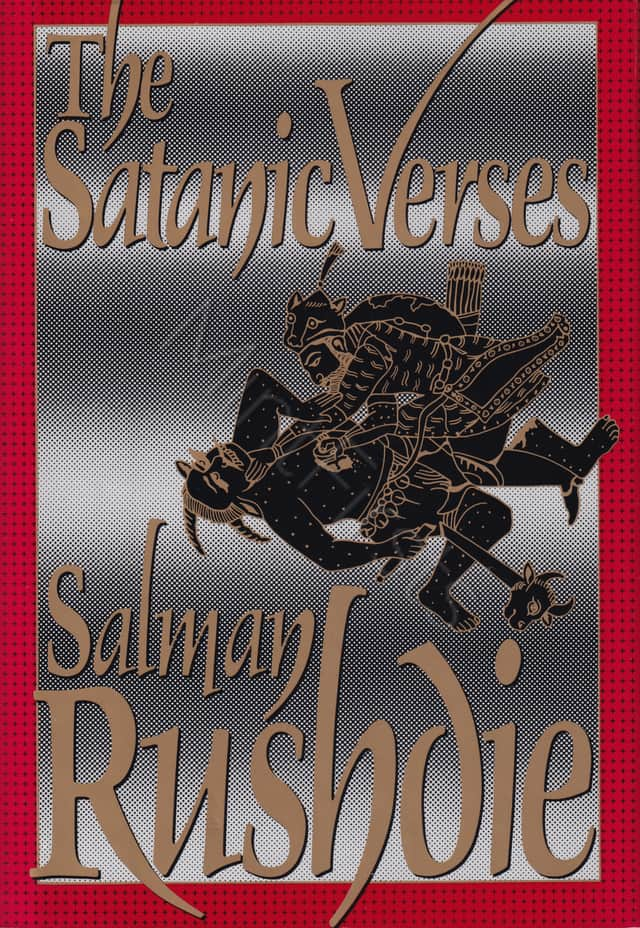Established
2004
Relaunched
2024
Our booksHow we tradeAbout usCredits & thanksYour account
- Home page
- Our books
- How we trade
- About us
- Credits & thanks
- Your account
- Your cart
MENU
The Satanic Verses
Signed fourth US printing of Salman Rushdie's The Satanic Verses

Salman Rushdie ⦗Sir Ahmed Salman Rushdie⦘
Fourth Printing of the U.S. Edition. Large 8vo. Pp. [x], 3–546, [4]. Quarter-bound black cloth over grey paper covered boards, lettered in gilt to spine; deckled fore-edge. Illustrated dustjacket, priced at $19.95 on the front flap, and featuring blurbs by Nadine Gordimer, Angela Carter, Victoria Glendinning, Bill Buford and Hyam Maccoby. Originally published by Viking in London on September 26, 1988, with the first U.S. edition by the same publisher following on February 22, 1989.
Signed by Author to title page.
Author's fourth novel. Winner of the 1988 Whitbread Prize for Fiction. Shortlisted for the 1988 Booker Prize (losing out to Peter Carey's Oscar and Lucinda). Gibreel Farishta, India's legendary movie star, and Saladin Chamcha, the man of a thousand voices, fall earthward from a bombed jet toward the sea, singing rival verses in an eternal wrestling match between good and evil. A whimsical and fantastic tale, as viewed through the prism of a magical realist lens. Its publication ignited an on-going debate on the dividing lines between freedom of expression, censorship, and religious tolerance.
The book's reference to several verses that Satan allegedly tricked Muhammad into including in the Qur'an, and which were later expunged, as claimed by the controversial Arabian historian Ibn Ishaq, were the main source for the fatwa (religious edict) conferred upon Rushdie by Iran's spiritual leader, the Ayatollah Khomeini. It was officially lifted by his successors in September 1998 and the state-sanctioned reward nullified.
Despite all this, Rushdie was repeatedly stabbed at the Chautauqua Institution in New York state on 12 August 1922, as he was about to deliver a lecture. He ruefully reflects on this attack which caused him to lose sight in his right eye, as well as the use of his left hand, in his 2024 memoir, Knife: Meditations After an Attempted Murder. "Exhilarating, populous, loquacious, sometimes hilarious, extraordinary... a roller-coaster ride over a vast landscape of the imagination." –The Guardian
special feature
signed
format
hardback
publisher
Viking / Penguin
published in
New York
publication year
1989
ISBN
0670825379
height × width
23.5 × 17 cm
genre
literary fiction
language
English
binding style
quarter cloth
binding state
original binding
condition . . .
mint
of jacket
mint
GBP£ 0.00
EUR€ 0.00
USD$ 0.00
ref.786 U74